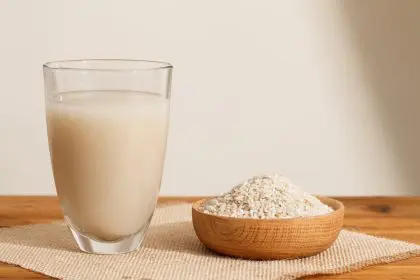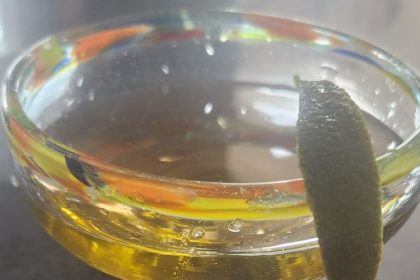The latest wellness trend sweeping through social media platforms has nutritionists and medical professionals raising concerns about the proliferation of misinformation in health spaces. Cortisol mocktails, the latest iteration of wellness drinks claiming to combat stress and promote weight loss, have captured widespread attention despite lacking scientific validation.
The anatomy of a mocktail trend
These non-alcoholic beverages, marketed as “adrenal cocktails,” typically combine citrus juices, coconut water, and sea salt in various proportions. Their rising popularity on platforms like TikTok reflects a broader pattern of wellness trends that promise quick solutions to complex health issues, often without scientific foundation.
Market dynamics
The emergence of cortisol mocktails highlights the increasing influence of social media on health trends, where anecdotal success stories can quickly transform into viral phenomena, regardless of scientific merit. This pattern raises questions about the responsibility of content creators and platforms in disseminating health information.
Scientific perspective
Medical professionals emphasize that the human body’s stress response system, particularly the adrenal glands, operates through complex mechanisms that cannot be significantly influenced by simple beverage combinations. The adrenal glands, which produce crucial hormones including cortisol, maintain remarkable resilience in healthy individuals.
These small but vital organs regulate numerous bodily functions, from stress response and metabolism to immune system function and blood pressure maintenance. Their sophisticated operation cannot be meaningfully altered through specialized drinks, regardless of ingredient combinations.
Misinformation concerns
The popularity of cortisol mocktails stems partly from their association with “adrenal fatigue,” a concept that lacks recognition in the medical community. This supposed condition, characterized by fatigue, mental fog, and weight management issues, represents a broader trend of attributing common symptoms to unproven medical conditions.
Clinical implications
Healthcare providers worry that the widespread acceptance of such unproven remedies might delay proper medical evaluation for individuals experiencing genuine health issues. The symptoms often attributed to adrenal fatigue could indicate various underlying conditions requiring professional assessment.
Ingredient analysis
While the components of cortisol mocktails – citrus juices, coconut water, and sea salt – offer certain nutritional benefits, their combination does not create a unique stress-reducing elixir. These ingredients can contribute to general hydration and mineral balance, but similar benefits can be achieved through a balanced diet.
The addition of supplementary ingredients like cream of tartar or specific spices in some recipes further complicates the narrative, potentially creating false expectations about their therapeutic value. Nutrition experts emphasize that no specific combination of these ingredients can directly influence adrenal function or cortisol levels.
Risk considerations
The popularization of these beverages raises several health concerns. Individuals with certain medical conditions, particularly those affecting kidney function or blood sugar regulation, might face risks from regular consumption of these drinks. The high potassium content in coconut water, combined with additional minerals, could pose challenges for sensitive populations.
Furthermore, the trend’s emphasis on quick solutions might discourage individuals from addressing underlying lifestyle factors contributing to their stress levels. This diversion from evidence-based stress management techniques could delay meaningful improvements in health outcomes.
Evidence-based alternatives
Medical professionals emphasize the importance of comprehensive approaches to stress management and overall wellness. Rather than relying on trendy beverages, individuals experiencing stress-related symptoms should focus on established lifestyle modifications and, when necessary, seek professional medical evaluation.
The scientific community continues to emphasize the value of traditional stress management techniques, including regular physical activity, adequate sleep, balanced nutrition, and various relaxation practices. These evidence-based approaches offer more reliable paths to stress reduction and improved well-being.
The persistence of wellness trends like cortisol mocktails reflects a broader societal desire for simple solutions to complex health challenges. While the appeal of quick fixes remains strong, the medical community emphasizes the importance of addressing health concerns through comprehensive, evidence-based approaches.
As social media continues to influence health trends, the need for critical evaluation of wellness claims becomes increasingly important. The cortisol mocktail phenomenon serves as a reminder of the gap between viral health trends and scientific evidence, highlighting the ongoing challenge of promoting evidence-based health information in an era of rapid information sharing.
The exploration of this trend underscores the importance of maintaining skepticism toward unproven health claims while emphasizing the value of established medical knowledge and professional guidance in addressing health concerns.











